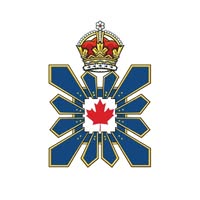By Lucas-Matthew Marsh
Local Journalism Initiative Reporter
Iori:wase
Kanien’kehá:ka activists have been reeling following revelations that Canada’s Security Intelligence Service (CSIS) has been actively monitoring groups in Kahnawake and Kanehsatake following the summer of 1990, commonly refered to as the Oka Crisis.
Declassified documents published last week in a CBC Indigenous investigation list a wide range of activists, institutions and community members as “known affiliates” of the Mohawk Warrior Society (MWS).
Among those named in the documents was the Mohawk Council of Kanesatake (MCK). MCK Acting Vice-Chief Brant Etienne told Iorì:wase that while he cannot guarantee whether any past council members had ties to the MWS, MCK has never issued any official resolutions or formal declarations towards the group.
“I think it was sort of just painting the entire organization [MCK] with the same brush,” Etienne said.
Etienne added that the possibility that MCK was being surveilled by an outside organization did not surprise him.
“It’s a bit of a running gag that we’re pretty sure the place is bugged,” Etienne said. “So, if it’s CSIS: makes sense. If it’s RCMP: makes sense. If its people associated with the Warriors or criminal organizations: makes sense.”
Another individual named in the documents is Ellen Gabriel, who served as a spokesperson for the Kanehsatake Longhouse during the summer of 1990. Gabriel questioned how CSIS could even operate under an assumption so far removed from reality.
“A known affiliate: what the hell does that even mean?” Gabriel said. “I reject their labels. I’m Kanien’kehá:ka first, and I follow our constitution.”
Following the summer of 1990, CSIS labelled the Warrior Society as “Native Extremists.”
While Etienne acknowledged that there are valid criticisms of the MWS tactics, Dr. Sean Carleton, a historian and Indigenous studies scholar at the University of Manitoba, said the term “Native Extremisms” is part of a broader strategy used to vilify Indigenous activism.
“It manufactures consent for using force,” Carleton said. “It sells an image of Indigenous people as threatening, and it helps justify a ‘might is right’ approach.”
Carleton also challenged the claimed from CSIS’s that these groups like MWS had become political following 1990.
“This has been the way settler governments and police have always treated Indigenous people,” Carleton said.
However, the one lesson that Gabriel thinks Canada learned from the summer of 1990 was the extent to which Indigenous peoples would go to resist colonialism.
“They were blindsided: they thought we were tamed,” Gabriel said.
